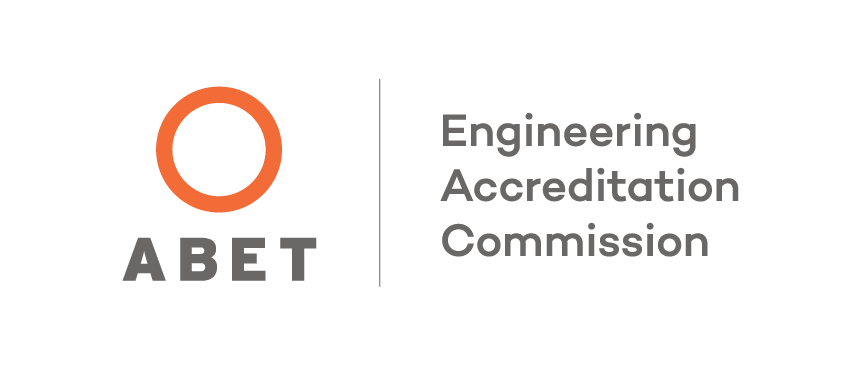Quick Degree Info
Degree Contact:
Mary Bell Goodson (Advisor)
Flowchart: Fall 2026, Fall 2025, Fall 2024, Fall 2023
(Click above to view pdf flowcharts or contact Engineering Advising for assistance.)
UA Catalog Listing
Degree Works
 The Bachelor of Science in Electrical Engineering program at the University of Alabama is accredited by the Engineering Accreditation Commission of ABET, under the commission’s General Criteria and Program Criteria for Electrical, Computer, Communications, Telecommunication(s) and similarly named Engineering Programs.
The Bachelor of Science in Electrical Engineering program at the University of Alabama is accredited by the Engineering Accreditation Commission of ABET, under the commission’s General Criteria and Program Criteria for Electrical, Computer, Communications, Telecommunication(s) and similarly named Engineering Programs.
UA’s electrical engineering program prepares students for dynamic careers in the varied areas of power generation, communication systems, manufacturing controls, signals processing, and control systems.
The first year students are integrated through the Freshman Engineering Program and are introduced to basic courses in mathematics and physical science, broadening courses in humanities and social science, and foundation courses in engineering. The following two years provide the core education in electrical engineering, with courses in computers, electronics, circuits, systems and electromagnetics. The last year of study includes technical electives to allow students to concentrate in selected areas of the discipline. For seniors, the department offers advanced courses in computers, communication, control, electromagnetics, microelectronics, materials and power.
Students must select two electrical engineering electives with labs. The elective areas are computers, microelectronics, electromagnetics, power systems, communication systems and control systems.
All Flowcharts: Fall 2026, Fall 2025, Fall 2024, Fall 2023, Fall 2022, Fall 2021, Fall 2020
Program Educational Objectives
The Program Educational Objectives for the B.S. in Electrical Engineering are:
- Graduates will excel in engineering careers and/or postgraduate education utilizing knowledge of Electrical Engineering disciplines and underlying fundamental principles of science and mathematics, engineering analysis, problem solving, and design;
- Graduates will expand their knowledge of current and emerging issues in Electrical Engineering and continue career-long professional development through engagement in lifelong learning;
- Graduates will grow professionally and advance throughout their engineering careers utilizing skills in effective communication; responsible, multidisciplinary teamwork, and adherence to principles of professional accountability and ethics.
Student Outcomes
Graduates of the Electrical Engineering program will have:
- An ability to identify, formulate, and solve complex engineering problems by applying principles of engineering, science, and mathematics;
- An ability to apply engineering design to produce solutions that meet specific needs with consideration of public health, safety, and welfare, as well as global, cultural, social, environmental, and economic factors;
- An Ability to communicate effectively with a range of audiences;
- An ability to recognize ethical and professional responsibilities in engineering situations and make informed judgments, which must consider the impact of engineering solutions in global, economic, environmental, and societal contexts;
- An ability to function effectively on a team whose members together provide leadership, create a collaborative and inclusive environment, establish goals, plan tasks, and meet objectives;
- An ability to develop and conduct appropriate experimentation, analyze and interpret data, and use engineering judgment to draw conclusions;
- An ability to acquire and apply new knowledge as needed, using appropriate learning strategies;
- An ability to solve mathematics problems in probability, statistics, differential equations, linear algebra, and complex variables as they relate to problems in Electrical Engineering.
 The Bachelor of Science in Electrical Engineering program at the University of Alabama is accredited by the Engineering Accreditation Commission of ABET, under the commission’s General Criteria and Program Criteria for Electrical, Computer, Communications, Telecommunication(s) and similarly named Engineering Programs.
The Bachelor of Science in Electrical Engineering program at the University of Alabama is accredited by the Engineering Accreditation Commission of ABET, under the commission’s General Criteria and Program Criteria for Electrical, Computer, Communications, Telecommunication(s) and similarly named Engineering Programs.